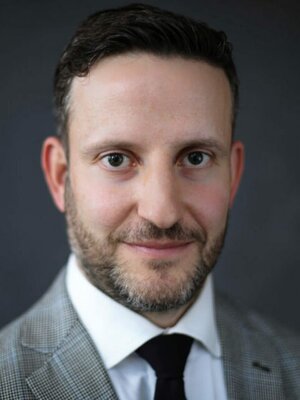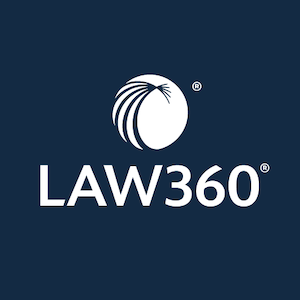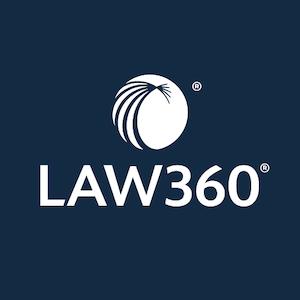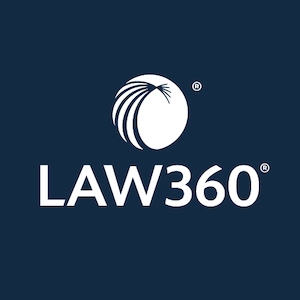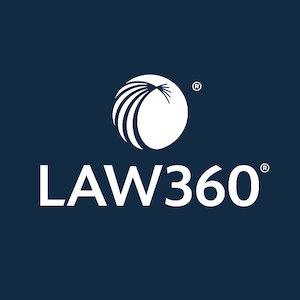Accountant-Owned Law Firms Could Blur Ethical Lines
By Seth Laver | February 7, 2025, 1:57 PM EST · Listen to article Your browser does not support the audio element. Seth Laver In a novel move, Big Four accounting firm KPMG LLP has taken the first step in seeking to own and operate a law firm in the U.S. Although permitted in other countries, the U.S. generally prohibits nonlawyers from law firm ownership. In 2020, Utah and Arizona became the first states to relax that standard, thereby opening the possibility of what is apparently on the horizon. Online legal providers were the first to act, and now, accounting firms have entered the fold. There are roughly 1.3 million attorneys in the U.S. Competition is considerable, and attorneys strive to develop a brand, a client base and some way to set ourselves apart from the rest of the pack. That pack has exclusively consisted of other members of the bar who have met the specific requirements necessary to practice law under the American Bar Association‘s Model Rules of Professional Conduct, which govern attorneys. Those rules prohibit nonlawyers from owning law firms in the U.S. due to ethical concerns regarding conflict-of-interest principles.[1] A far cry from regulating attorneys, enforcing and supervising the practice of law by nonattorneys could prove challenging. Attorney oversight or, more to the point, the supervision of the practice of law, is of paramount concern not only to control and guide the practice of law, but the governing rules also help foster a sense of trust and transparency between practitioners and the public. Whether it be an accountant, an attorney, or anyone — or anything — in between, we must collectively ensure that the ethical and procedural rules governing the practice of law apply uniformly and fairly, and with an eye toward the client’s best interests. Rule 5.4, titled “Professional Independence of a Lawyer,” generally prohibits an attorney or firm from sharing fees with a nonlawyer, and it prohibits an attorney from forming “a partnership with a nonlawyer if any of the activities of the partnership consist of the practice of law.”[2] The stated goal of the rule is to “protect the lawyer’s professional independence of judgment.”[3] As Stephen P. Younger, past president of the New York State Bar Association, wrote in a 2022 Yale Law Journal article, The restrictions imposed by the Rule aim to address the concern that if non-lawyers, who are not bound by the Rules of Professional Conduct, have a financial interest in a lawyer’s profits, they might prioritize profit over the duties the lawyer owes to clients and adversely influence a lawyer’s conduct.[4] In most jurisdictions, law school graduates are ineligible for admission to the bar without passing a bar exam. Attorneys must take continued education courses, some geared specifically to conflicts of interest and the rules governing the duties afforded to clients. The cost of violating those rules can be incredibly severe, including disbarment. According to Younger, the applicable governing bodies may face difficulties in ensuring that “nonlawyers would uphold the same ethical duties if they were allowed to be involved in providing legal services.”[5] The regulation of educated and trained attorneys is no easy task, but it may ultimately prove less demanding than enforcing those rules against those without that level of legal training and experience. On the other hand, proponents of the recent reforms disagree with the traditional restrictions of Rule 5.4. In 2020, amid its efforts to abandon Rule 5.4, the Arizona task force responsible for the amendments said in a statement that it was driven by “an ethical obligation to assure that legal services are available to the public and that if the rules stand in the way of making those services available, the rules should change.”[6] According to recent studies, a disproportionate number of Americans cannot effectively engage the legal profession. Reportedly, nearly 80% of the 20 million civil cases filed in state courts each year involve at least one unrepresented party,[7] and more than half of small businesses facing a legal issue cannot engage counsel.[8] While there are many causes contributing to this wide justice gap, there is a growing academic consensus that the strict regulations limiting who may provide legal services and how those services may be funded are a major driver.[9] Enter Utah and Arizona, which have been leaders in changing law firm ownership structures and the delivery of legal services. For its part, in August 2020, the Arizona Supreme Court voted on “far-reaching changes that could transform the public’s access to legal services.”[10] According to Arizona Supreme Court Chief Justice Robert Brutinel, the goal of the amendments was to “improve access to justice and to encourage innovation in the delivery of legal services.” By way of its reforms, Arizona now permits nonlawyer “legal paraprofessionals” to provide limited legal services to clients, including court appearances. Moreover, Arizona rescinded the traditional Rule 5.4 ban on nonlawyer ownership of a law firm or fee-sharing. In its place, Arizona enacted a regulatory framework to license alternative business structures. Arizona has reportedly approved more than 100 alternative business structures, including legal services and staffing companies such as LegalZoom, as well as large personal injury firms partially owned by nonlawyers. Similarly, Utah initiated a program in 2020 to allow nontraditional legal businesses to operate under eased rules with oversight. Reportedly, KPMG Law US’ recent application to the Arizona Supreme Court comprised the first overture by an accounting firm to take advantage of these laws. A court committee is considering the application and whether to provide the required licensure. According to a Reuters article, KPMG said it would lean “on [its] network and technology to provide compliance and contract-related services and other outsourced legal work in the United States.” We can expect considerable debate and potential pushback. Notably, the ABA House of Delegates reaffirmed its commitment to Rule 5.4 and overwhelmingly passed a resolution stating that any modification to the rule, as drafted, is “inconsistent with the core values of the legal profession.” The ABA encouraged states to “innovate and to experiment” to improve
Accountant-Owned Law Firms Could Blur Ethical Lines Read More »
